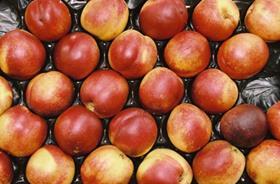
Australia and China have inked joint protocols that will allow the bilateral trade of nectarines between the two nations.
The move has been 13 years in the making for Australian stonefruit growers and exporters, who are already eyeing the benefits of access to the world’s most populated nation.
“The success of citrus and table grape exports to China has driven vastly improved and now profitable prices to growers compared to a few years ago when growers were losing money,” said Ian McAlister, chairman of Australia’s Summer Fruit Export Alliance (SEDA). “Nectarine growers who have received extremely low prices the last two seasons are likely to see vastly improved prices in the coming season.”
The new protocol is the first by China to recognise a fruit fly pest free area (PFA) on mainland Australia. South Australia’s Riverland region has been approved as free from all fruit flies, allowing exporters to airfreight from this area without fumigation or temperature controls. McAlister said Australia’s eastern states, including South Australia, have also been declared to be free of Mediterranean Fruit Fly (MFF).
Under the protocol, China has agreed to a new low dose methyl bromide fumigation treatment for Queensland Fruit Fly, which was developed using grower levies. The new treatment will reduce the risk of fruit being damaged by the fumigation treatment.
Australian access to the Chinese market appeared a few more years away when the subject was tabled at a meeting between growers and the Australian Department of Agriculture’s plant biosecurity team in April 2015. This forecast drove the formation of SEDA, which growers funded voluntarily.
SEDA is a sub-committee of peak industry body Summerfruit Australia, and currently represents 80 per cent of fresh market stonefruit production and 90 per cent the export volume.
McAlister also acknowledged the part increased resources provided to the Department of Agriculture by the Australian Government played in progressing market access negotiations.
“This extra funding along with the commitment of department staff to engage with us in frank discussion about what we had to do on our side to achieve market access is why we have access for nectarine exports to China,” McAlister said.



